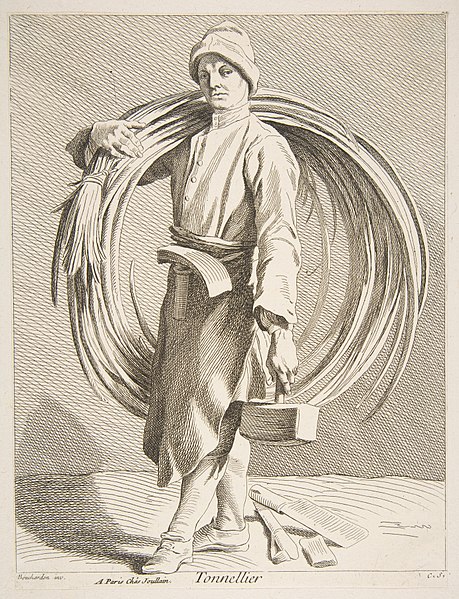John Alden was a crew member on the historic 1620 voyage of the Mayflower which brought the English settlers commonly known as Pilgrims to Plymouth Colony in Massachusetts. He was hired in Southampton, England as the ship's cooper, responsible for maintaining the ship's barrels. He was a member of the ship's crew and not a settler, yet he decided to remain in Plymouth Colony when the Mayflower returned to England. He was a signatory to the Mayflower Compact.
A conjectural image of John and Priscilla Alden by George Henry Boughton, 1884
Cooper by Anne Claude Philippe de Tubières, an 18th-century etching of a cooper holding barrel hoops
The Mayflower Compact 1620: an 1899 painting by Jean Leon Gerome Ferris depicts John Alden signing the document.
A view of the recreated Plimoth Plantation, which includes a replica of John Alden's house seen second from the left
The Mayflower Compact, originally titled Agreement Between the Settlers of New Plymouth, was the first governing document of Plymouth Colony. It was written by the men aboard the Mayflower, consisting of Separatist Puritans, adventurers, and tradesmen. Although the agreement contained a pledge of loyalty to the King, the Puritans and other Protestant Separatists were dissatisfied with the state of the Church of England, the limited extent of the English Reformation and reluctance of King James I of England to enforce further reform.
Signing the Mayflower Compact 1620, an 1899 painting by Jean Leon Gerome Ferris
Bradford's transcription of the Compact
1920 U.S. postage stamp depicting the signing of the compact
Signing of the Mayflower Compact Bas-relief by Cyrus Dallin at the Pilgrim Monument Provincetown, Massachusetts







